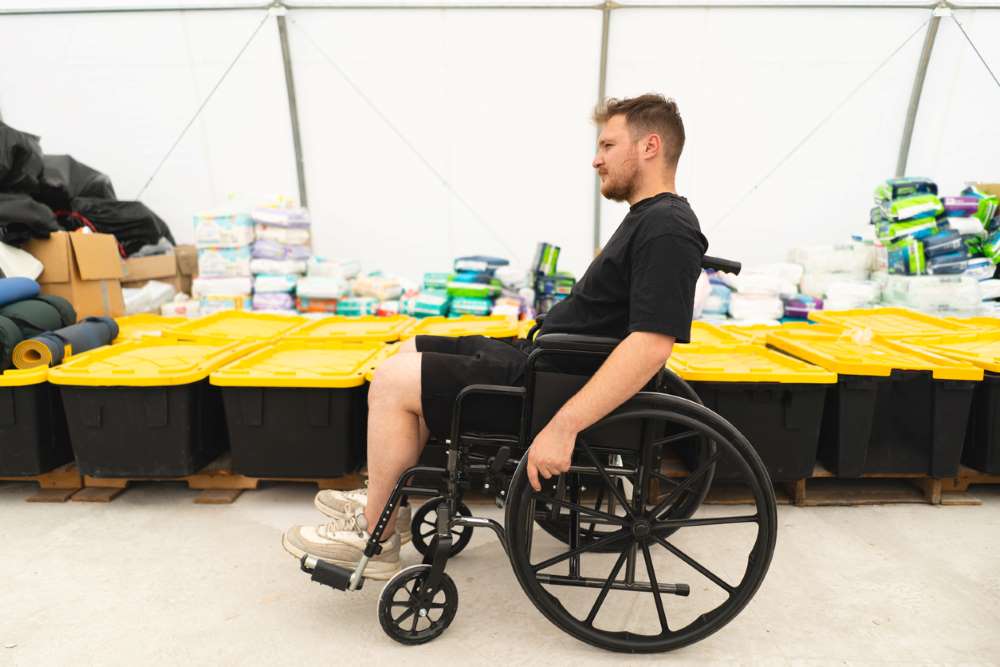
Volunteering is a great way to give back to your community, meet new people, and support causes you’re passionate about. However, like any physical activity, volunteering comes with its own risks, and accidents can happen. Whether you're working at a charity event, assisting with a community cleanup, or helping to build homes, injuries can occur. Knowing what to do if you're injured while volunteering can make a significant difference in your recovery and future involvement. If you’ve been injured while volunteering and are unsure about the next steps, don’t hesitate to seek trusted legal support to ensure you’re properly compensated and can focus on your recovery. Here are some important steps to take if you experience an injury while volunteering.
1. Get Immediate Medical Help
Your health and well-being should always be the top priority. If you’re injured while volunteering, no matter how minor it may seem, seek medical attention right away. Some injuries might appear harmless at first but can worsen over time if not properly treated. For instance, a simple slip-and-fall could result in a sprain, strain, or even a fracture that needs immediate care.
If first-aid assistance is available on-site, take advantage of it, but also follow up with a professional medical evaluation. Make sure to document everything from the injury, including how and where it happened, so you have a clear record in case you need to reference it later.
2. Notify the Volunteer Coordinator
As soon as possible, report the injury to your volunteer supervisor or the organization you're volunteering with. Most volunteer organizations have protocols in place for handling accidents, and reporting your injury ensures that proper steps are taken. Even if your injury seems minor, it’s important to document it officially, in case it develops into something more serious over time.
Providing a clear, detailed account of what happened, where it happened, and the conditions at the time will help the organization maintain safety for other volunteers. This also gives the organization an opportunity to investigate the incident and ensure proper safety measures are in place to avoid future accidents.
3. Check the Organization’s Safety Policies
Different volunteer organizations have different safety protocols and insurance policies in place for volunteers. After reporting your injury, ask the organization about their policies regarding volunteer safety. Some larger organizations may have volunteer insurance that can cover medical expenses or provide other forms of assistance.
Understanding the organization's safety policies will help you know what steps to take next. If you're working with an organization regularly, it’s a good idea to ask about these policies before you begin your volunteer work. That way, if anything unexpected happens, you’re prepared and know how to respond.
4. Take Care of Your Recovery
After you’ve reported the injury and sought medical care, focus on your recovery. Depending on the severity of your injury, you may need to take time off from volunteering and other physical activities. Follow the medical advice you’ve received, attend follow-up appointments, and stick to any recommended treatment plans.
During this time, stay in touch with the volunteer organization. They may want updates on your recovery and could potentially offer support or guidance. It’s also a good time to assess whether you’re ready to return to volunteering and what safety precautions you might need to take in the future.
5. Learn from the Experience
Injuries, while unfortunate, offer a chance to learn about safety and prevention. Once you've recovered, think about the circumstances that led to your injury and what could be improved. Was there a particular hazard that wasn’t addressed? Could better equipment or clearer instructions have helped avoid the accident? Taking the time to reflect on these questions not only helps protect your well-being but also ensures a safer environment for future volunteers.
If appropriate, share your insights with the volunteer organization. They may appreciate your feedback and use it to improve their safety protocols for future projects. Whether it’s implementing more detailed safety briefings, offering better protective gear, or improving site conditions, small changes can make a big difference.
6. Continue Volunteering Safely
Once you’ve fully recovered from your injury, don’t let the experience discourage you from continuing your volunteer work. Volunteering is a valuable and fulfilling activity, and with the right precautions in place, you can enjoy it safely. Before starting your next volunteer project, take a few moments to review any safety procedures, ask questions, and ensure you have the proper tools or equipment to avoid future injuries.
By staying mindful of safety, taking care of yourself, and learning from past experiences, you can continue making a positive impact in your community while protecting your health and well-being.
Stay Safe and Keep Volunteering
Getting injured while volunteering can be a frustrating and painful experience, but knowing how to respond can make all the difference. By prioritizing your health, reporting the injury, and focusing on recovery, you can minimize the impact of the accident. Most importantly, remember to reflect on the experience and consider how safety can be improved for future volunteering efforts. Taking these steps will not only help protect yourself but will also contribute to creating a safer, more enjoyable environment for everyone involved.



























